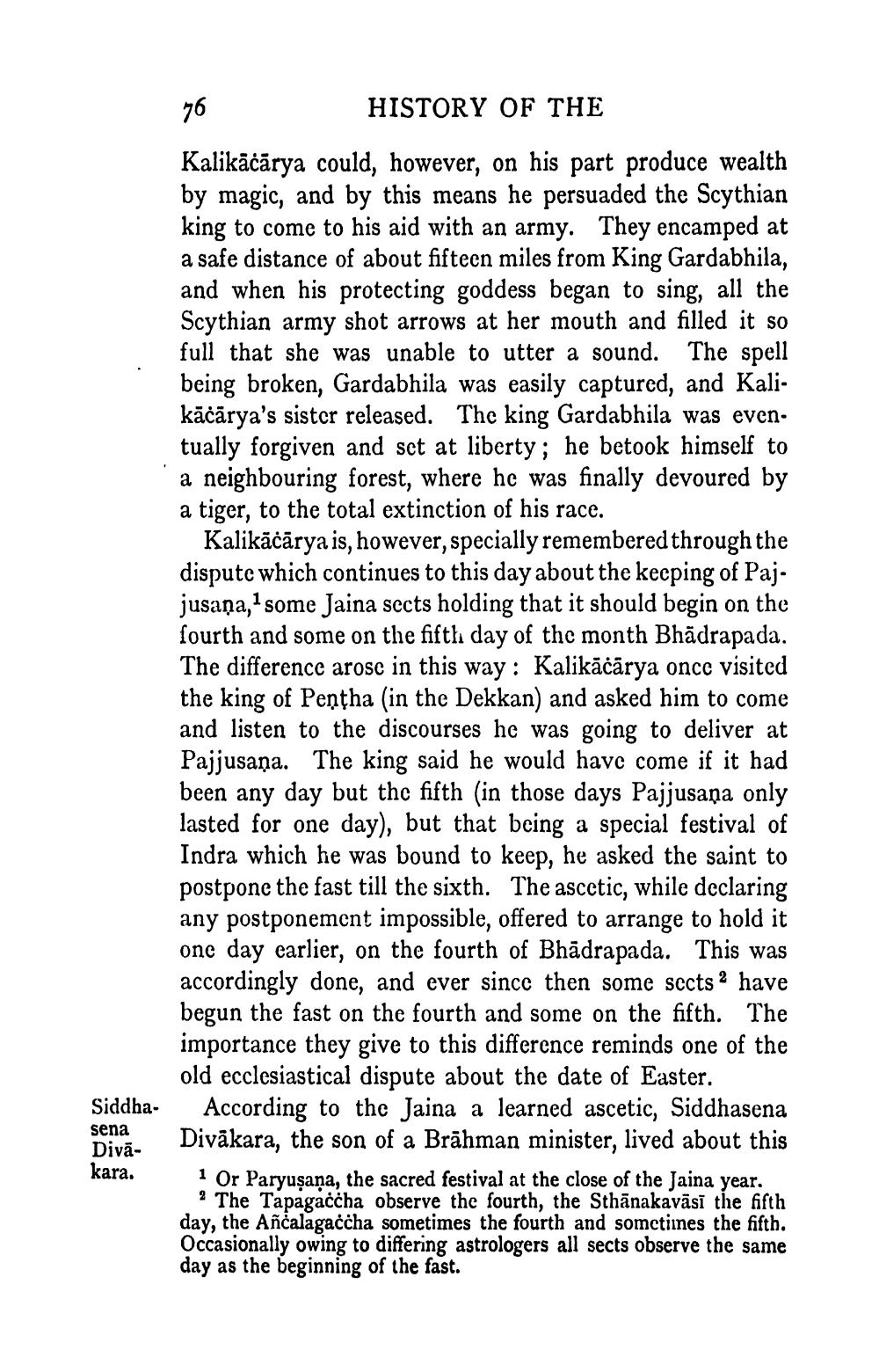________________
Siddha
sena
Divä
kara.
76
HISTORY OF THE
Kalikācārya could, however, on his part produce wealth by magic, and by this means he persuaded the Scythian king to come to his aid with an army. They encamped at a safe distance of about fifteen miles from King Gardabhila, and when his protecting goddess began to sing, all the Scythian army shot arrows at her mouth and filled it so full that she was unable to utter a sound. The spell being broken, Gardabhila was easily captured, and Kalikācārya's sister released. The king Gardabhila was eventually forgiven and set at liberty; he betook himself to a neighbouring forest, where he was finally devoured by a tiger, to the total extinction of his race.
Kalikācārya is, however, specially remembered through the dispute which continues to this day about the keeping of Pajjusana,1 some Jaina sects holding that it should begin on the fourth and some on the fifth day of the month Bhadrapada. The difference arose in this way: Kalikācārya once visited the king of Pentha (in the Dekkan) and asked him to come and listen to the discourses he was going to deliver at Pajjusana. The king said he would have come if it had been any day but the fifth (in those days Pajjusaņa only lasted for one day), but that being a special festival of Indra which he was bound to keep, he asked the saint to postpone the fast till the sixth. The ascetic, while declaring any postponement impossible, offered to arrange to hold it one day earlier, on the fourth of Bhadrapada. This was accordingly done, and ever since then some sects 2 have begun the fast on the fourth and some on the fifth. The importance they give to this difference reminds one of the old ecclesiastical dispute about the date of Easter.
According to the Jaina a learned ascetic, Siddhasena Divakara, the son of a Brahman minister, lived about this
1 Or Paryuṣaṇa, the sacred festival at the close of the Jaina year. 2 The Tapagaċċha observe the fourth, the Sthanakavāsī the fifth day, the Añcalagaċċha sometimes the fourth and sometimes the fifth. Occasionally owing to differing astrologers all sects observe the same day as the beginning of the fast.




